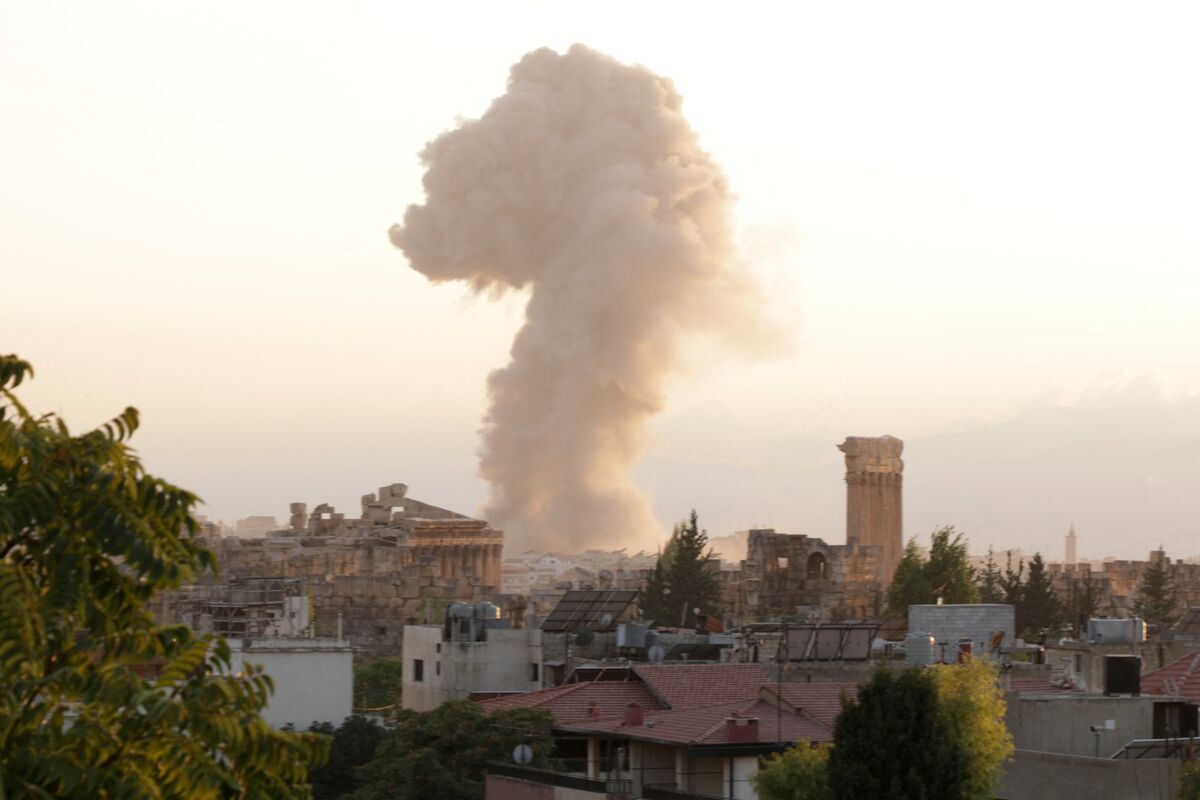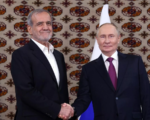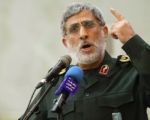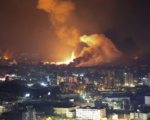Amid escalating cross-border strikes between Israel and Hezbollah, Lebanon has called on the United States to intervene and stop the fighting, warning that the situation could spiral into full-scale war. On Tuesday, an Israeli airstrike in Beirut killed Hezbollah commander Ibrahim Qubaisi, heightening tensions and sparking fears of regional destabilization. Qubaisi, a key figure in Hezbollah’s missile and rocket force, was targeted amid an ongoing Israeli offensive that has killed over 569 people, including 50 children, and injured 1,835 in Lebanon, according to the Lebanese Health Minister.
The violence follows nearly a year of conflict between Israel and Hamas in Gaza, with fears growing that Hezbollah, an ally of Hamas, could further draw Lebanon into the conflict. The U.N. Security Council is set to meet on Wednesday to address the crisis. U.N. Secretary General Antonio Guterres warned that Lebanon was “at the brink,” stressing that a conflict in Lebanon could have catastrophic consequences similar to Gaza.
U.S. President Joe Biden, speaking at the U.N. General Assembly, called for restraint, noting that “full-scale war is not in anyone’s interest.” However, Lebanese Foreign Minister Abdallah Bou Habib criticized Biden’s remarks, urging stronger U.S. intervention and highlighting that Washington is key to halting the violence due to its close alliance with Israel.
Meanwhile, the humanitarian crisis in Lebanon is worsening. Displaced civilians from southern Lebanon are taking refuge in schools and shelters across Beirut. At a shelter in Bir Hassan, volunteers provided basic supplies for displaced families. Amid the growing toll, half a million people have been displaced, with many civilians struggling under extreme conditions.
Hezbollah and Israel continue to trade strikes. Israeli Defense Minister Yoav Gallant stated that Hezbollah had suffered significant losses, while Hezbollah claimed responsibility for attacks on Israeli military bases and launched drones at Israel’s Atlit naval base. The conflict shows no sign of abating, with diplomatic efforts from the U.S., Qatar, and Egypt failing to secure a ceasefire.
As international pressure mounts, Iranian President Masoud Pezeshkian called for a permanent ceasefire in Gaza and an end to what he described as Israeli “barbarism” in Lebanon. Israel, for its part, continues its air campaign, targeting Hezbollah and other Iranian-aligned groups in Syria. The situation remains volatile, with concerns that continued fighting could engulf the region in broader conflict.


















